Diyon's a student living at home & working part time to fund his education
Meet Diyon
Early 20’s
4th year university student studying business
Lives with his family
Works 10 – 15 hours a week as a lifeguard
Earns $17.00 per hour
Expected to graduate with $20,000 - $30,000 in OSAP debt
Diyon is a practical focused student working towards his goal of having a good quality life. He defines a good quality of life as one where he is engaged in work he likes, has time to spend with family and to give back to his community.
Diyon is currently a 4th year university student studying business in Toronto. His parents emigrated from South Asia before he was born and like most immigrants, Diyon’s parents who did not speak English, started at the bottom. His father started by working odd jobs including washing dishes at a university cafeteria. He slowly worked his way to other roles including cook, chef, bartender and he now owns a small restaurant. His mother worked in a factory for a while and now works at a McDonald’s restaurant.
Despite his family’s financial situation, Diyon lived in an environment where money did not seem to be challenging. His parents worked hard, lived within their means and spent time encouraging and helping to build Diyon’s financial capacity.
Diyon remembers hanging out at his Dad’s restaurant in the summer of Grade 5 and occasionally helping out. At the end of the summer, his father took him to the bank and gave him $250 to deposit in a bank account. This recognized the work he had helped with and also got him to think about saving. The money was his but it was clear that its purpose was savings - Diyon did not get a bank card to withdraw it from the bank.
Diyon’s father was instrumental in gently pushing him towards lifeguarding as a community member had suggested it would be a good opportunity. Diyon has been a lifeguard since he was 16, and now works as a swim instructor 10 – 15 hours a week earning $17.00 an hour.
Finally, Diyon’s parents pushed him towards academics. His mother wanted him to be a doctor or lawyer. Given Diyon did not enjoy sciences and was looking for something practical that would give him a good quality of life, he netted out choosing business.
With a good understanding of finances, Diyon considered costs when selecting a university, choosing to live at home and comparing the tuition costs across schools. Diyon has taken out OSAP to enable him to pursue his education and is expecting to graduate with $20 - $30 k in debt. He uses his work income to cover his living expenses.
Diyon considers himself to have good money management skills. The biggest challenges he struggles with include unexpected expenses like conferences that he likes to attend to help build his network and knowledge as well as social pressures around going out.
He knows that when he is focused on a goal he can be very effective at saving. When he was planning for exchange, he was focused on saving the majority of the money from his part time job and eliminating spending where possible – for example he remembers delaying the upgrade on his phone until after he returned from Europe. This helped him to save $10k to pay for his semester in Spain.
Diyon has two bank accounts, one for savings and investing and a separate account for his monthly spending activities. Whenever he gets paid, he always puts a small amount into the savings account and that sometimes forces him to reorganize and trim down his spending to accommodate his other bills. He sees it as a way to pay himself first. Once Diyon has $1,000 in his monthly use account he moves it to his investing account.
Since coming back from exchange, Diyon recognizes that he has been more careless with money – the urgency does not seem to be there, he says.
Right now he is focused on preparing for graduation and getting a first job. He is taking advantage of school resources like the career centre and working hard to build a network through extracurricular activities and upper year friends.
Currently, Diyon has a few goals in the back of his mind including a conference in Hamilton, a grad trip, paying off OSAP and getting a car within a couple of years after graduation. Diyon is expecting to be able to secure a job earning in the $40,000 range. Given the living costs in Toronto, Diyon plans to live at home for the first few years after graduation.
Overall, Diyon is happy with where he is, the habits he has built up, the education he has invested in. He is also very grateful for the support of his family. They have made his journey easier through their guidance, encouragement as well as contentment to have him live at home so he could save money while attending school.
From a systems perspective, I wonder how we might ensure the resiliency of all students, equipping them with the guidance, supports and encouragement they need to reach their goals.
